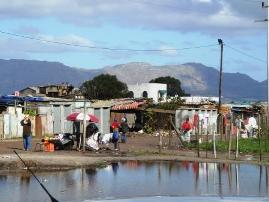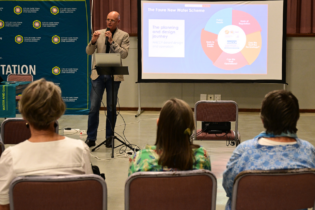The City of Cape Town’s recently completed flood mitigation measures in the Los Angeles informal settlement near Driftsands have already improved the living conditions of residents.
The initiative forms part of the City’s dedicated efforts to design and implement innovative engineering solutions to reduce the instances of extreme flooding in low-lying informal settlements across the city, which are topographically unsuitable for habitation. Approximately R4 million has been spent on the construction of raised gravel platforms in this settlement. This has enabled residents to rebuild their informal structures away from the flood-prone, low-lying areas. Stormwater earth drains have also been constructed, while local access roads have been raised and shaped to reduce the flooding of roadways. The existing toilets and water standpipes have also been repaired.“The City’s Human Settlements Directorate has worked tirelessly to put in place measures to reduce flooding in low-lying informal settlement areas where this is possible, especially during the winter months,” says Councillor Benedicta van Minnen, City’s Mayoral Committee Member for Human Settlements.
“The City’s re-blocking programme, which redesigns informal settlements in such a way as to improve access for emergency vehicles, is another way that the City is trying to reduce the occurrence of extreme flooding in winter and to reduce the impact of destructive fires in the summer months,” she continues. Residents, however, also have a responsibility to reduce the risk of flooding, especially considering that many areas are topographically unsuitable for habitation, for re-blocking, or for the installation of these raised platforms. “Apart from our preparations for the winter season, the City also remains on high alert to assist residents who are affected by extreme flooding. “As we are currently experiencing a wet spell, we are appealing to our residents to do their bit by, amongst others, digging trenches around their dwellings to divert water away and by reporting blocked drains, intakes and illegal dumping,” concludes Van Minnen.





